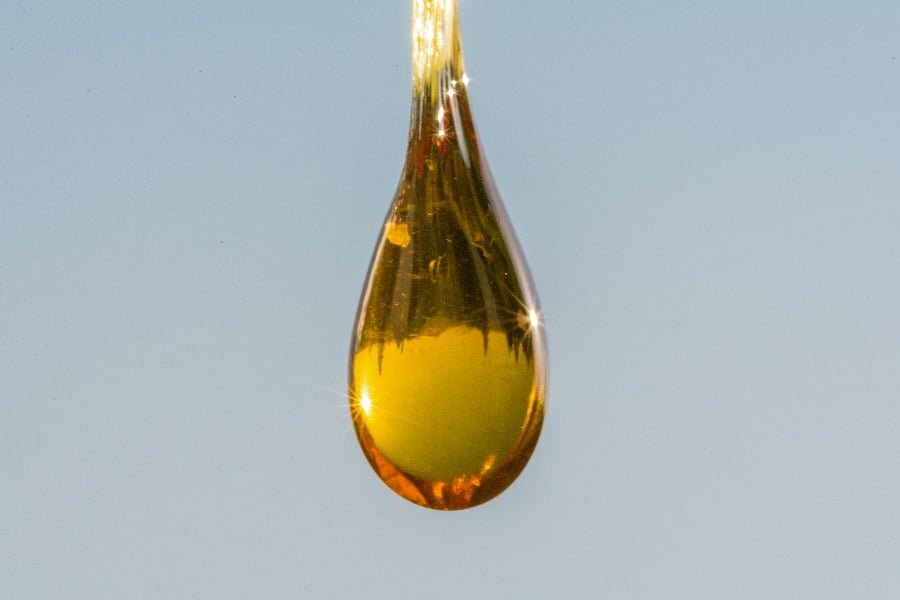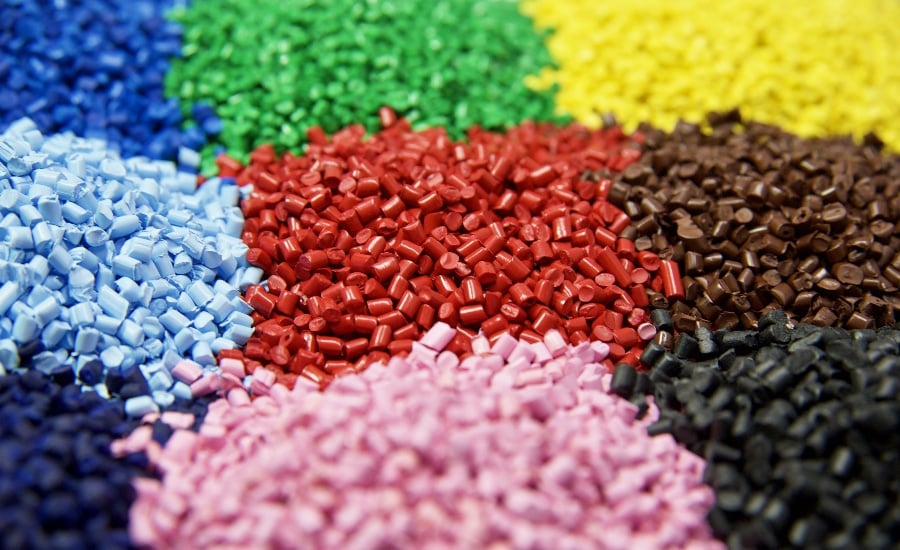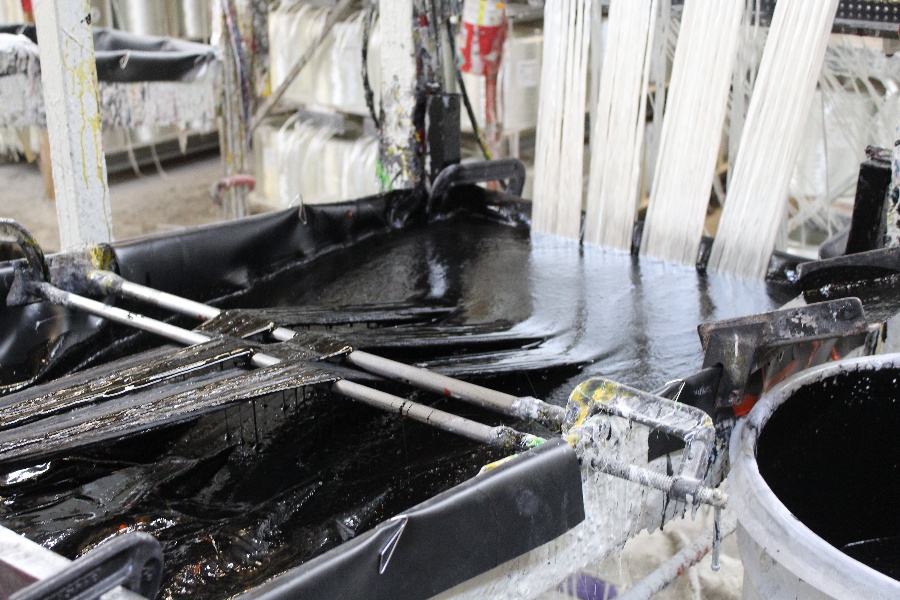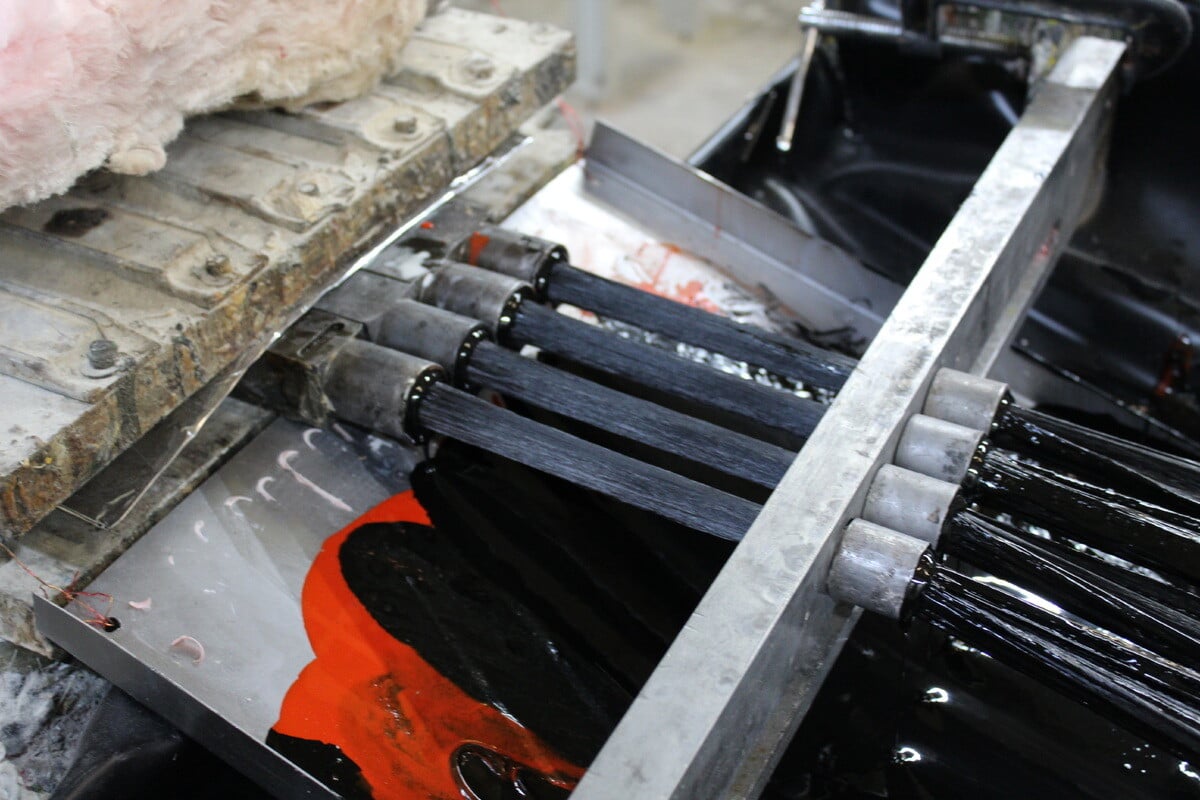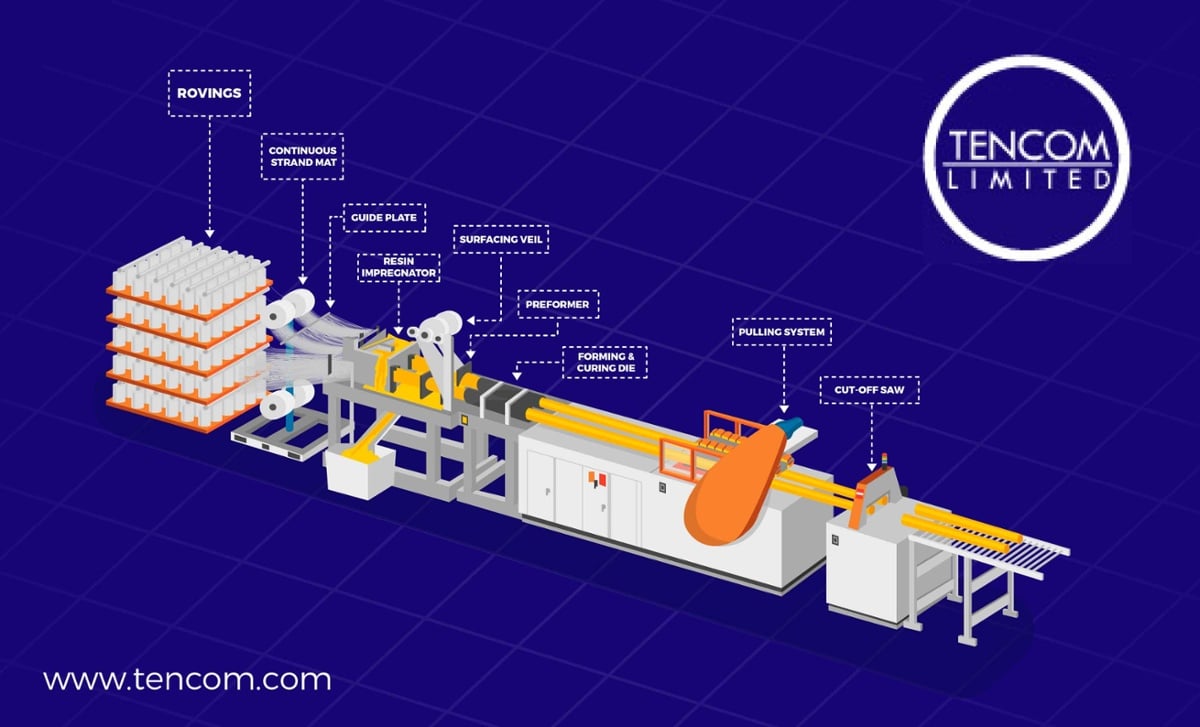
Epoxy is something you’re probably already familiar with. Many people would recognize it as a two-part adhesive commonly sold alongside wood glue, Elmer’s, and other similar products.
Yet its applications are much broader than this. It is becoming an increasingly important ingredient in a lot of products in modern life, at least one of which you’re almost certainly using right now (keep reading to find out if we’re right).
Our goal in this article is to give you an overview of what epoxy is and what it can be used for.
Resins and Epoxy Resin
To start with, it is useful to know that epoxy fits within the broader category of synthetic polymers. Coming from Greek words that mean “many parts,” polymers are long chains of individual chemical units bonded together. The individual units are called “monomers,” and you could liken them to the individual links out of which a long chain can be made.
Notice we said synthetic polymers. These long, chain-like structures are abundant in nature and can be found in substances like wood, silk, or cotton. The synthetic kind is created, usually, out of compounds derived from petroleum products. Figuring out how to create synthetic polymers in the late 1800s was an important discovery, allowing us to develop many materials that are an important part of modern life.
The main category of synthetic polymer in use is plastic. We use this term generally to refer to polymers that are rigid, as opposed to highly-flexible polymers like rubber.
Coming to epoxy, in particular, there is a bit of ambiguity to the term. Most generally, it refers to a class of prepolymers and polymers that contain a particular chemical structure known as an epoxide group. A prepolymer is a building block of a polymer. So “epoxy” is used to talk both about the chemicals that are used to create this particular polymer and the finished, hardened form of the polymer as well.
You might also see references to epoxy resin. In this context, a resin is a liquid polymer that can be converted into a rigid one. So an epoxy resin is the form epoxy is in before it is hardened into a finished product of some kind.
To summarize, epoxy is either the viscous form or the finished, hardened form of a synthetic polymer that contains an epoxide group.
The Development of Epoxy
That all sounds a bit technical, doesn’t it? Let’s be more practical in this section by looking at when the epoxy was developed and why it is such an important polymer.
Though the first fully synthetic polymer was created in 1907, the industry really began to develop in the 1930s with several important polymers being invented. Epoxy was one of them, first patented by German chemist Paul Shlack in 1934. Shortly thereafter, Dr. Pierre Castan in Switzerland and Dr. Sylvan Greenlee in the US developed the form of epoxy most commonly used today.
Commercial production began with a Swiss company in 1946. Today, there are more than 50 different chemical variations that are produced under the general name of epoxy.
The Properties of Epoxy
What are the particular properties of epoxy that make it so useful? It is, first of all, a very strong material that nevertheless can maintain flexibility. It is also an incredible adhesive that tightly bonds a variety of materials. It is an excellent insulator and is very resistant to both heat and chemicals. Other polymers share many of these properties to a degree, though epoxy is especially strong in these areas.
Not all types of epoxy are exactly the same. The properties can vary depending upon the formulation and also the curing process. When curing occurs in epoxy, the long polymer chains are bonded to one another (called cross-linking), creating a 3D structure. This is what transforms it from a viscous fluid to a hard, rigid solid.
Some epoxies are cured at room temperature by adding a hardener. Other epoxies are supplied with a hardener already mixed in that is activated by heat. These epoxies are typically cured at temperatures up to 302 degrees Fahrenheit. Still, others can be cured by exposure to ultraviolet light.
By selecting the appropriate curing process along with a particular epoxy and additional additives, if desired, the properties of epoxy can be fine-tuned for a specific application.
Uses of Epoxy
So where is this tough polymer being used? Here are some important areas.
Coatings: Epoxy can be used as a sprayed coating, like paint, that cures to a very hard and durable finish. It is especially employed in industrial settings and automotive parts. It is particularly useful where high heat resistance is important. Manufacturers also coat the inside of food containers with epoxy to provide a corrosion-resistant seal.
Adhesives: Epoxy is called a “structural adhesive” because of its high performance. It is used in applications like aircraft, automobiles, boats, and sporting equipment like golf clubs where the performance of a bond is critical. It can effectively adhere to wood, glass, metal, stone, and some plastics.
Electronics: Do you recall at the beginning of this article that we said you’re probably using something with epoxy in it right now? We were thinking of your smartphone or computer. The standard, green electronic circuit board you can find in many electronics is a composite of glass fiber and epoxy. Epoxy is also used to coat electronic parts to prevent short circuits and guard against dust and moisture.
Furniture and Crafts: Epoxy is a popular material to use to create that thick, glossy bar table look on countertops or decorative items. It can also be used in art and jewelry.
Composites: There are many areas within the industry, construction, and consumer goods where fiber-reinforced polymer (FRP) composites, like fiberglass, are used. Epoxy is one of the polymers of choice, used in applications where its particular strengths are called for.
Epoxy for Your Next Project
We’ve only scratched the surface here in terms of epoxy’s applications. It is such a useful polymer that the market for it is expected to see steady growth in the years ahead.
Tencom creates fiberglass pultrusions with a number of different resins, including epoxy. If you are interested in seeing if this polymer might be the perfect material for your next project, get in touch with our experts to discuss your needs.





